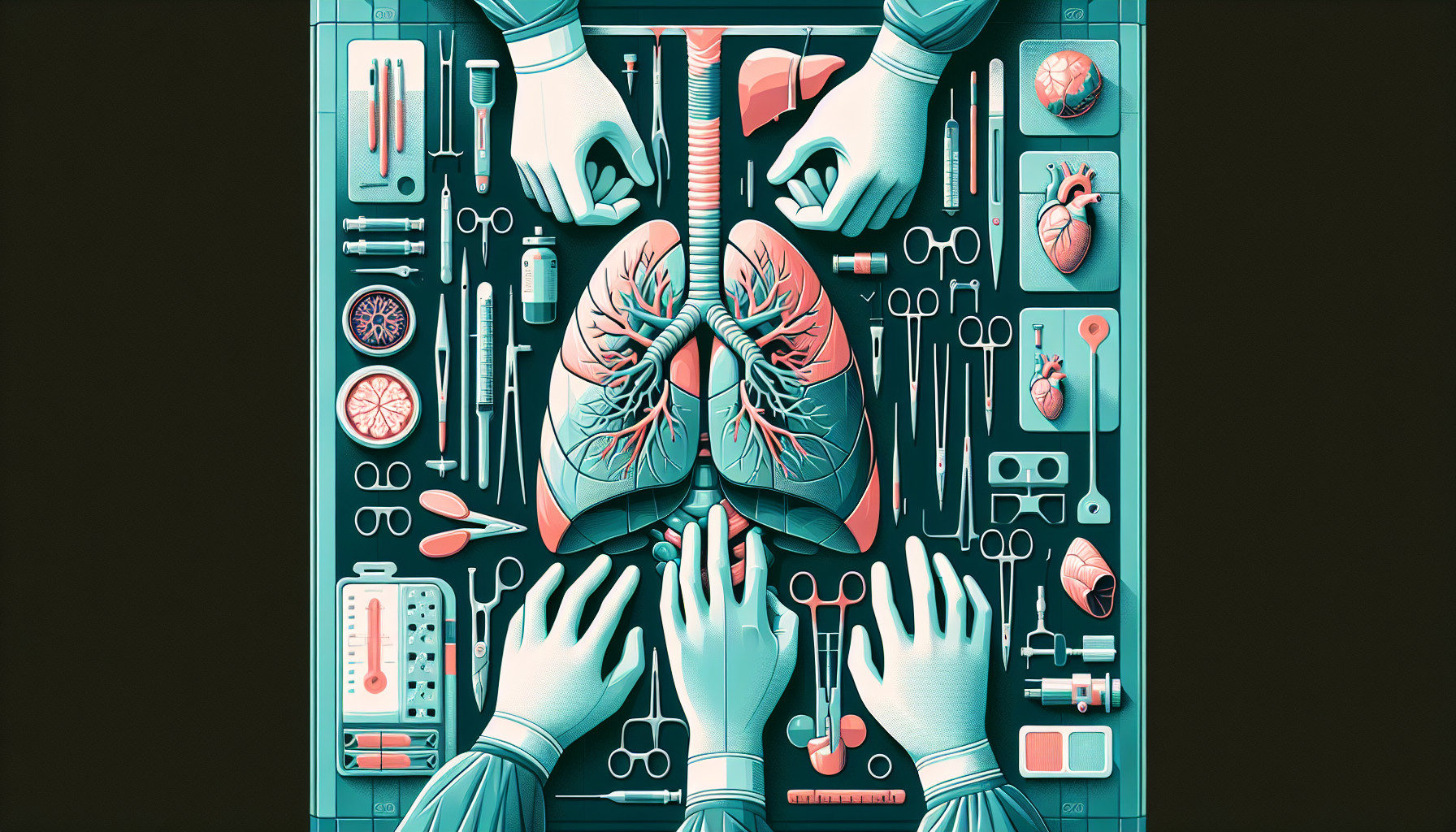Our Summary
This study compared two medical imaging techniques, single-photon emission computed tomography/computed tomography (SPECT/CT) and lung perfusion scintigraphy (LPS), to predict lung function after surgery in patients with already compromised lung performance. This comparison involved 274 patients who had both tests and whose lung function was already less than 80% normal.
The results showed a good level of agreement between the two methods for predicting lung function after surgery. The amount of radioactive tracer taken up by the lungs measured by LPS and the predicted postoperative lung function scores from both methods had a high degree of concordance, meaning they were in close agreement. The predicted postoperative lung function scores also had a high correlation with the actual postoperative lung function. This was true even in patients undergoing a second operation, i.e., redo-operation.
In simpler terms, this study found that both methods can accurately predict how well the lungs will function after surgery, and that LPS is as good as SPECT/CT at making these predictions, even in patients who are having a second operation.
FAQs
- What are the two medical imaging techniques compared in this study to predict lung function after surgery?
- How accurate are SPECT/CT and LPS in predicting lung function after surgery, according to this study?
- Can these prediction methods be applied to patients undergoing a second operation?
Doctor’s Tip
Therefore, a helpful tip a doctor might tell a patient about lung resection is that both SPECT/CT and LPS imaging techniques can effectively predict how well their lungs will function after surgery. This information can help the patient understand what to expect and prepare for any potential changes in lung function post-surgery.
Suitable For
Patients who are typically recommended lung resection include those with lung cancer, emphysema, bronchiectasis, and lung infections, as well as those with large or multiple lung nodules. Additionally, patients with compromised lung function who may benefit from surgery to improve their quality of life or prognosis may also be recommended for lung resection.
Timeline
Before lung resection, a patient will typically undergo a series of tests and evaluations to determine their lung function and overall health. This may include imaging tests such as CT scans and chest X-rays, pulmonary function tests, and possibly a biopsy to confirm a diagnosis.
After lung resection, the patient will likely experience pain, discomfort, and difficulty breathing. They will be closely monitored in the hospital for complications such as infection, blood clots, and collapsed lung. Physical therapy may be recommended to help improve lung function and prevent complications.
In the weeks and months following surgery, the patient will gradually recover and regain their strength. They may undergo follow-up tests to assess their lung function and overall health. It may take several months for the patient to fully recover and return to their normal activities.
Overall, the goal of lung resection is to remove diseased or damaged lung tissue and improve the patient’s quality of life. With proper care and monitoring, many patients are able to recover well and resume their normal activities after surgery.
What to Ask Your Doctor
Some questions a patient should ask their doctor about lung resection include:
- What is the purpose of the lung resection surgery?
- What are the potential risks and complications associated with the surgery?
- How will my lung function be affected after the surgery?
- Will I need any additional tests or imaging studies to assess my lung function before the surgery?
- How long is the recovery period after lung resection surgery?
- Will I need any rehabilitation or physical therapy after the surgery?
- What are the chances of needing a second operation (redo-operation)?
- How accurate are the imaging techniques, such as SPECT/CT and LPS, in predicting my postoperative lung function?
- Are there any specific factors that may affect my individual outcome after lung resection surgery?
- What is the long-term outlook for my lung health after the surgery?
Reference
Authors: Na KJ, Park S, Lee HJ, Park IK, Kang CH, Kim YT. Journal: Eur J Cardiothorac Surg. 2020 Dec 1;58(6):1228-1235. doi: 10.1093/ejcts/ezaa211. PMID: 32879936
